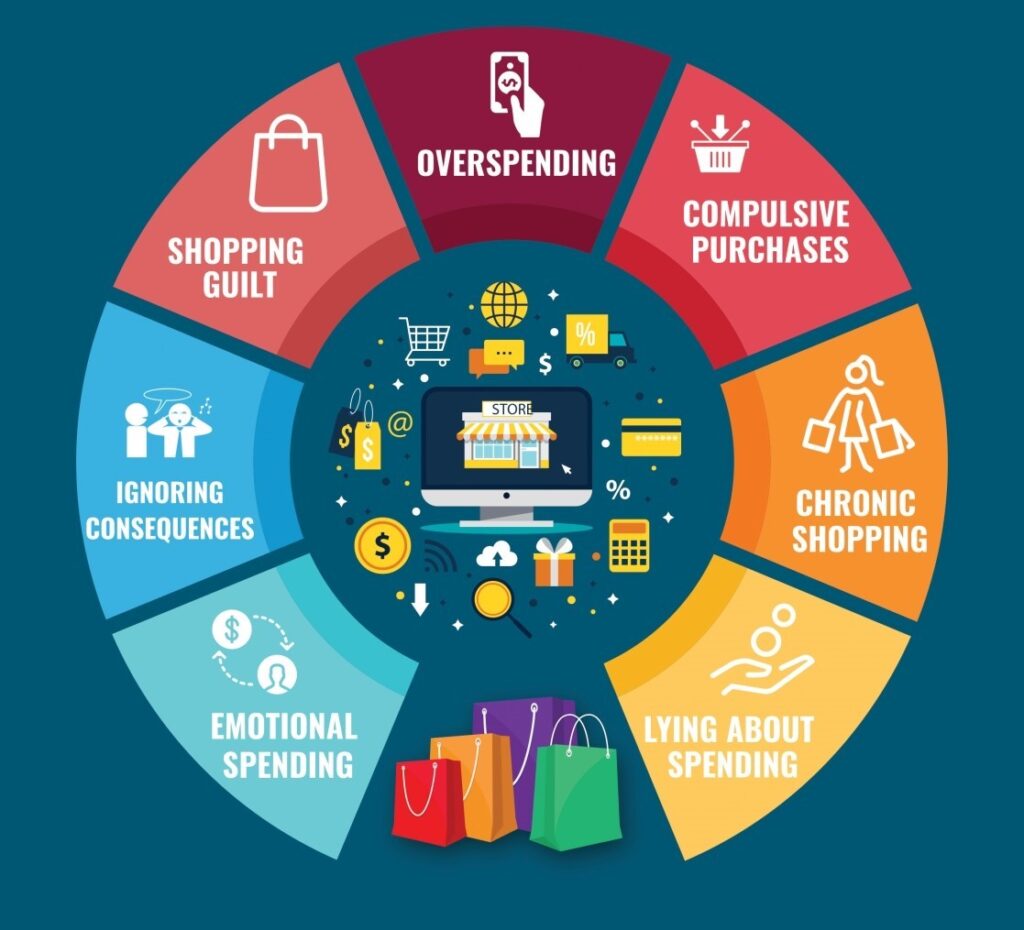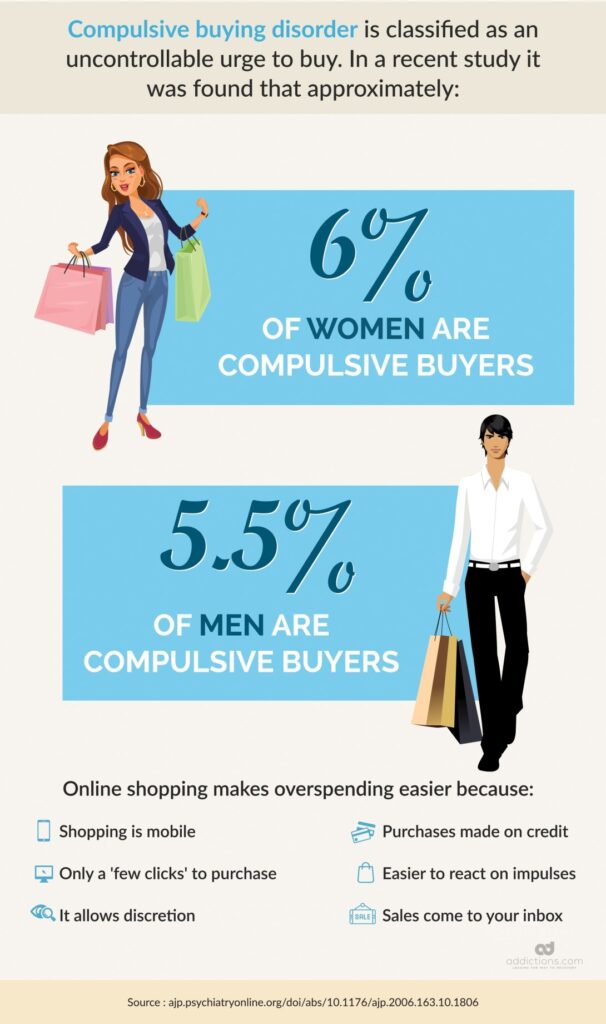What is the Effects of E-Commerce on Human Life
E-commerce in human life is akin to a powerful force, molding the very essence of our existence. This blog delves into the multifaceted impact of E-Commerce on Human Life – from the joys of convenience to the sobering ethical dilemmas, we explore it all.

E-commerce has revolutionized the way we shop and consume goods and services.
It has made it easier, faster, and more convenient to buy what we need, whenever and wherever we want. But what are the real-world effects of e-commerce on our lives?
On one hand, e-commerce has had many positive impacts. It has given us access to a wider range of products and services than ever before, and it has made shopping more affordable and accessible to people all over the world. E-commerce has also created new jobs and opportunities, and it has boosted the economy.
On the other hand, e-commerce has also had some negative impacts. It has contributed to the decline of brick-and-mortar retail, and it has led to an increase in online fraud and scams. E-commerce has also been blamed for contributing to social isolation and consumerism.

“E-commerce is like a genie out of the bottle. It’s here to stay, and we need to learn to live with it.” – Jeff Bezos, CEO of Amazon
This quote is relevant because it captures the duality of e-commerce. It is a powerful force that can be used for good or for bad. It is up to us to decide how we use it.
Table of Contents
The Good: Positive Effects of E-Commerce on Human Life
I. Convenience at Your Fingertips:

The effects of e-commerce on human life mean that necessities and luxuries alike are now at your fingertips—groceries, electronics, fashion – all just a click away. E-commerce has revolutionized the way we shop, making it easier and more convenient than ever before to buy the things we need and want.
Emotional effects of e-commerce on human life?
E-commerce can have a positive impact on our emotional well-being. It can save us time and stress, and it can give us access to a wider range of products and services than we could ever find in a traditional store. This can lead to feelings of satisfaction, happiness, and even empowerment.
E-commerce can also be a great way to connect with others and build relationships. For example, many online retailers offer customer reviews and social media integration.
This allows customers to share their experiences with other shoppers and to connect with the brands they love. This can lead to feelings of community and belonging.

II. Global Marketplace:
For example, imagine a busy parent who is trying to juggle work, childcare, and household responsibilities or old-age people. E-commerce can make their life much easier by allowing them to shop online at their convenience.
You can browse products from the comfort of your own home, and you can have your purchases delivered right to your door. This can free up your time and energy so that you can focus on the things that are most important to you.
III. Job Opportunities and Entrepreneurship:
E-commerce creates livelihoods. It’s a launchpad for budding entrepreneurs to follow their passions, even with limited resources.
E-commerce has created a number of new job opportunities, including:
- Web developers and designers
- E-marketing specialists
- Customer service representatives
- Warehouse and logistics workers
- Delivery Agents
- Digital Content Creators

These jobs are often well-paying and offer opportunities for advancement.
IV. Entrepreneurship
E-commerce has also made it easier for people to start their own businesses. In the past, starting a business required a lot of upfront investment, such as renting a physical storefront and purchasing inventory.
However, with e-commerce, it is possible to start a business with very little upfront investment.
For example, someone could start an online store selling handmade crafts or vintage clothing. They could also start a dropshipping business, which is a type of business where the seller does not keep any inventory on hand. Instead, when a customer places an order, the seller simply contacts the supplier and the supplier ships the product directly to the customer.

V. Dropshipping–
It is a popular business model for entrepreneurs because it is relatively low-risk and easy to start.
However, it is important to note that dropshipping can be competitive and it is important to find a niche market and to provide excellent customer service.
VI. Accessibility and Inclusivity:
E-commerce in human life empowers all. It levels the playing field for those who face physical or geographical challenges.
E-commerce has the potential to make the world more accessible and inclusive. By providing people with access to a wider range of products and services from the comfort of their own homes, e-commerce can help to break down barriers and create a more level playing field.
For example, e-commerce can make it easier for people with disabilities to shop.

People with limited mobility can use e-commerce to shop without having to leave their homes or navigate crowded stores.
People with visual impairments can use screen reader software to access e-commerce websites and product descriptions.
E-commerce can also make it easier for people in underserved communities to access products and services.
People in rural areas can use e-commerce to shop for products that are not available in their local stores.
People in low-income communities can use e-commerce to compare prices and find the best deals.

VII. Cost Savings:
Emotionally, it’s gratifying to know that E-commerce can mean financial relief. Lower prices due to reduced overheads can make a significant difference in one’s budget.
Consumers can save money through e-commerce in various ways-
- On gas and parking by shopping online instead of driving to a brick-and-mortar store.
- On-time by shopping online instead of waiting in line at a physical store.
- On shipping costs by taking advantage of free shipping offers.
- On discounts and promotions that are only available online.
- On impulse purchases by have more time to think about their purchases and by taking advantage of a return policy.
The Bad: Negative Effects of E-Commerce on Human Life
Effects of E-commerce on Human Life in terms of Bussiness-
VIII. Threats to Brick-and-Mortar Stores:
The emotional toll on traditional retailers is palpable as they struggle against the giants of E-commerce in human life.
E-commerce has also made it more difficult for traditional retailers to compete on price.
Online retailers often have lower overhead costs than traditional retailers, which allows them to offer lower prices to consumers. This has made it difficult for traditional retailers to compete on price alone.
IX. Privacy and Security Concerns:
“E-commerce in human life demands privacy vigilance.” – Anonymous. Security risks, data breaches, and identity theft loom large, affecting our emotional well-being.

E-commerce businesses collect a lot of data about their customers, including their names, addresses, credit card numbers, and social security numbers.
This data can be stolen by hackers and used to commit identity theft. Customer’s personal information is shared with multiple companies, which increases the risk of a data breach.
Finally, e-commerce has made it easier for criminals to sell stolen goods and services online.
This makes identity theft more profitable for criminals, which incentivizes them to continue stealing people’s identities.
X. Environmental Impact:
Convenience comes at a cost. E-commerce’s ecological footprint with its packaging waste and transportation emissions weighs heavily on our collective conscience.

E-commerce raises ethical concerns related to sustainability and environmental impact. E-commerce businesses often ship products from all over the world, which contributes to greenhouse gas emissions and other environmental problems.
Additionally, e-commerce businesses often generate a lot of packaging waste.
XI. Digital Divide:
E-commerce widens the emotional chasm between those with internet access and digital literacy and those without, furthering inequality.
Not everyone has access to e-commerce. People in rural areas, low-income communities, and communities of color are less likely to have access to the Internet and other resources needed to participate in the e-commerce economy.
E-commerce retailers often avoid paying taxes in the communities where they operate. This deprives local governments of revenue that could be used to fund essential services, such as education and infrastructure.
XII. Overconsumption:
While emotionally satisfying, the ease of E-commerce can also lead to overconsumption, draining resources and generating waste.
The Ugly: Ethical and Social Implications of E-Commerce in Human Life
Emotional Effects of E-commerce on Human Life:

XIII. Counterfeit and Piracy Issues:
Counterfeit products are unauthorized copies of genuine products that are made with inferior materials and construction. Pirated products are unauthorized copies of copyrighted or trademarked works, such as software, music, and movies.
Emotional turmoil arises when counterfeit goods and piracy on E-commerce platforms harm consumers and businesses, such as
- Product Quality: Counterfeit pharmaceuticals can contain harmful ingredients and counterfeit electronics can cause fires.
- Economic damage: Counterfeiting and piracy can cost real brands billions of dollars in lost revenue each year. This can lead to job losses and higher prices for consumers.
- Damage to innovation: Counterfeiting and piracy can discourage businesses from investing in innovation. If businesses know that their products will be counterfeited or pirated, they are less likely to invest in new products and technologies.
XIV. Impact on Local Communities:
E-commerce’s convenience can erode the fabric of local communities, emotionally affecting those left behind. This can be especially harmful for people who live alone or who have difficulty making social connections.

XV. Social Isolation:
Screens replace human connection in the age of E-commerce, potentially leading to loneliness and mental health issues. Social isolation and loneliness are some of the major emotional effects of e-commerce on human life. When people spend more time shopping online and less time interacting with others in person, they can start to feel isolated and disconnected.
XVI. Addiction and Impulse Buying:
One of the most concerning effects of E-commerce on human life is a negative emotional effect. The emotional thrill of online shopping can spiral into addiction, causing financial distress. For example, it can be addictive and can lead to overspending.
For example, imagine that you are someone who struggles with impulse control. E-commerce can make it very easy to overspend. You can click a few buttons and have a new product delivered to your door in just a few days.
This can be tempting, especially if you are feeling stressed or bored. However, overspending can lead to financial problems and guilt.

XVII. Ethical Dilemmas:
E-commerce raises profound ethical questions about labor practices, exploitation, and the responsibility of global supply chains. Additionally, e-commerce businesses often use algorithms to track and monitor workers, which can lead to feelings of surveillance and exploitation.
XVIII. FOMO-

Additionally, constant exposure to advertising and marketing messages can lead to feelings of inadequacy and low self-esteem. We are constantly bombarded with images of perfect people and products, which can make us feel like we never measure up. This can be especially harmful to young people and people who are already struggling with body image issues.
The effects of e-commerce on human life raise a number of ethical concerns related to privacy and data security. E-commerce businesses collect a vast amount of data about their customers, including their purchasing habits, browsing history, and personal information.
This data can be used to target consumers with advertising, but it can also be used to discriminate against consumers or to track their movements.
Conclusion
Overall, the emotional effects of e-commerce on human life are complex and varied. It can have both positive and negative impacts on our lives.
It is important to be mindful of the potential negative effects of e-commerce and to take steps to mitigate them.
For example, it is important to set a budget for online shopping and to limit the amount of time you spend shopping online. It is also important to make an effort to connect with others in person, even if it is just for a quick coffee or walk.
The effects of E-commerce on human life are a powerful, emotional rollercoaster. Achieving a balance and practicing responsible consumption is the key to maximizing the emotional benefits and mitigating the negative impacts of E-Commerce in Human Life.
E-commerce has transformed human life in profound ways, offering both opportunities and challenges.
It’s essential to navigate this digital landscape mindfully, balancing the convenience it offers with the ethical considerations and potential pitfalls.
As we continue to embrace E-commerce, let’s do so with awareness, responsibility, and a focus on the well-being of individuals and communities.
Call to Action
Join the emotional conversation! Share your thoughts on social media and explore the profound effects of E-Commerce on Human Life.
Suppose you find that e-commerce is having a negative impact on your emotional well-being. In that case, there are steps you can take to mitigate these risks, such as setting limits on your spending, taking breaks from shopping, and connecting with people in the real world.



1 Comment
Kruti · November 18, 2023 at 5:10 pm
Good write up. Even though we know all truth but we still enjoy e shopping.